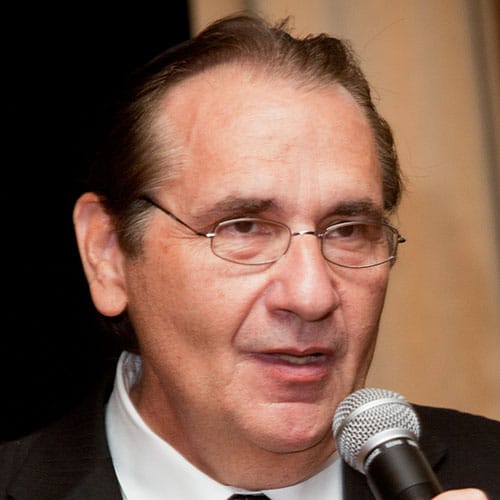 Steven Poretzky
Steven Poretzky A few years ago, long-time Encino resident Steven Poretzky was winding down his career as a financial consultant and then executive director at Shomrei Torah Synagogue in West Hills. While he wasn’t sure what his future would hold, he knew it would include continuing his volunteer work on behalf of the San Fernando and Conejo Valley’s Jewish communities.
After meeting with Rabbi Richard Camras, the rabbi at Shomrei Torah, to discuss starting what would become the Melton School of Adult Jewish Learning, their conversations evolved and took an unexpected turn.
“For years, the Jewish communities in the San Fernando and Conejo Valleys had been trying to organize an all-volunteer Chevra Kadisha, with no success,” Poretzky said. “There are 300,000 Jews in the San Fernando and Conejo Valleys of all denominations with no community-based valley Chevra Kadisha. The more we talked, the more I knew I had found my calling.”
“A proper Jewish burial is not only a communal responsibility to the deceased and their families, but a privilege for the volunteers.” – Steven Poretzky
Chevra Kadisha (Hebrew for “holy society”) is a term used to describe the Jewish community’s responsibility to perform a proper Jewish burial in accordance with Orthodox Jewish law.
“Jewish burial has a number of different pathways,” Poretzky said. “Some synagogues help congregants with funeral and burial arrangements. If someone is not affiliated with a synagogue, they usually work directly with a funeral home or cemetery. In a small percentage of cases when traditional Jewish rituals are requested by the family, the funeral home, for a fee, will arrange paid-personnel to perform the rituals, which are often performed under the Chevra Kadisha name.”
What makes the Valley Chevra Kadisha different is that trained volunteers perform the services, and there is no charge. Poretzky and Rabbi Jonathan Bernhard, former senior rabbi of Temple Adat Ari El in Valley Village, lead it.
Poretzky credits the inspiration of Camras and the work of Kavod v’Nichum and its affiliate, the Gamliel Institute, national organizations that provide resources, education and training to Chevra Kadishas, with helping guide and structure the Valley’s organization.
Those services include shmira (guardian), a person who sits alongside the deceased until the time of burial, which is arranged as soon as possible. Jewish tradition believes the soul does not immediately depart, and a deceased body should not be left alone until burial.
Then there is tahara, or a ritual cleaning of the body with water. The body is dressed in a kittel, a white robe worn on High Holidays and special Jewish occasions, or wrapped in a simple burial shroud. While these services are being performed, special prayers are recited near the deceased.
Valley Chevra Kadisha services are performed at funeral home facilities. As they gear up to become fully operational in the next month or so, they are currently busy recruiting volunteers, forging partnerships with Valley synagogues and rabbis and educating and training volunteers. They have contacted 31 synagogues in the Valley, with 10 on board so far to help educate their communities about the traditions related to Chevra Kadisha and support its work.
A big part of the current effort is to encourage rabbis to discuss from the pulpit the sensitive, yet critically important issue, of a proper Jewish burial. Why would a rabbi need encouragement when death, mourning and Jewish burial are such central parts of a rabbi’s job?
“Some rabbis don’t want to discuss the topic now, especially when we are just getting out of the COVID-19 pandemic,” Poretzky said. “But proper Jewish burial is a topic that needs to be discussed and understood. It’s one of the key lifecycle events in Judaism that deserves the attention of all of us.”
So far, 28 Jewish valley residents have stepped forward to volunteer their time and services. One volunteer said, “After burying my daughter, my parents and my best friend, I wanted to honor their memories, and give back to our Jewish community. It just seems the right thing to do at this stage of my life.”
“A proper Jewish burial is not only a communal responsibility to the deceased and their families, but a privilege for the volunteers,” Poretzky said. “Performing traditional rituals in accordance with Jewish laws and customs are the greatest mitzvah a Jew can perform for the departed, because it is a mitzvah that the recipient can never repay.”
Valley Chevra Kadisha’s website can be found at www.valleychevrakadisha.org. ■























 More news and opinions than at a Shabbat dinner, right in your inbox.
More news and opinions than at a Shabbat dinner, right in your inbox.